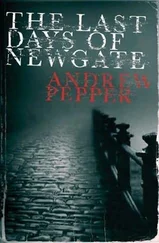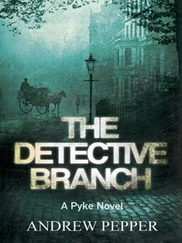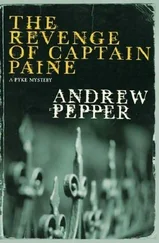He pushes his gaze through the whirring blades of an exhaust fan that does its best to pump out the smoke, the yeasty splatterings, the pine-scented deodorant pucks that only half mask the reek of backed-up sewage. Quarter to eleven and still light outside. He squints to see as far as he can. Over the rusting tin roofs of the road-maintenance building and the padlocked radio station, past the yearning faces of TV satellite dishes atop the long-immobilized mobile homes, to the huddled green domes of the St Cyr range that cuts all of them off from the rest of the Territory, the country, the continent.
A woman and child are about to open the door across the room. What troubles him is that he’s more certain of an event that has yet to occur than the past that has brought him here.
‘Miles?’
As the Welcome Inn’s bartender, concierge and night cook, it is Bonnie’s job to stick her hand into the beer fridge, toss keys to any guests who might be staying in one of the lopsided rooms out back, and slam the microwave door shut behind frozen mini-pizzas. As a rule, Miles never sits with others at one of the tables. It leaves him alone to watch Bonnie slide her elbows toward him, her face hovering close enough for him to glimpse the remaining caramel-coated molars in her smiling mouth and take in a whiff of the photo-developing fluid that is in fact the conditioner she uses to prolong the life of her perm. He nods and absently lifts his hand to trace the scars down the right side of his face. Furious striations broad and deep enough to fit whole fingertips into.
‘Thanks,’ Miles says, and feels Bonnie clink another bottle against the two others in front of him. She maintains the habit of not collecting empties until closing time so that, as the night goes on, the patrons display scorecards on their tables.
Miles looks around and does a quick tally on who’s winning so far this evening. Mungo Capoose. Sharing a table with the younger guys, Jerry McCormack and Crookedhead James. Along with Miles, they constitute four-fifths of the Ross River forest firefighting crew. Mungo, Jerry and Crookedhead, along with the absent King, are his ‘attack team’, though by the look of them, all they’re fit to attack is a tray of tequila shots followed by the pillows in their beds.
‘Where’s King?’ Miles asks Mungo. The old man who is not as old as he looks lifts his head slowly, as though pulling his attention away from an intriguing calculation involving the slivers in the plywood next to his hands.
‘Working the radio.’
‘Do me a favour? Go check on him when you’re done that beer.’
‘You sending me out on a wake-up call?’
‘I wouldn’t trust anybody else.’
Miles would check on King himself except, the truth is, he’s not crazy about being alone around the kid. He would rather not have to let King give him that look of his, the hooded stare that seems to be focused at a point slightly higher than the eyes. It makes Miles think the kid is reading a signed confession nailed to his forehead.
‘Hear they got a smoker up near Dawson,’ Jerry says. He has just lit his cigarette and stares at the open lighter in his hand as though its flame has informed him of larger blazes elsewhere.
‘That’s right,’ Miles answers.
‘Big?’
‘Not too big.’
‘Will it get their crew a renewal?’
‘I expect so.’
‘Big enough, then.’
‘What do you think?’ Crookedhead James asks Miles. ‘We going to get our own smoke to bury anytime soon?’
‘Maybe King is getting coordinates from a spotter right now.’
‘I’m almost done,’ Mungo says, taking the hint. ‘I just hate leaving a bottle with something in it.’
Mungo says this in the same fateful tone that Miles remembers him using when asked why people in Ross River possess such a thirst. ‘It’s not that there’s nothing to do but drink,’ Mungo clarified. ‘It’s that there’s nothing better to do but drink.’
Aside from jobs on the attack team and a handful of come-and-go government positions, the men in town have little opportunity for employment. Some describe themselves as hunting guides, but Margot Lemontagne is the only one who makes her living at it. Margot and Wade Fuerst run Ross River’s one registered guiding business, catering to the occasional hunters from Outside who come in search of moose, Dall sheep and, most prized of all, the last of the giant inland grizzly bears on the planet. It is also generally admitted that she is the best tracker in town. This praise would be surprising if only because Margot is a woman but is even more remarkable when that woman is thirty-two, and a Métis without any local Kaska relations.
Although he sits outside her peripheral vision, she feels Miles’s eyes on her and abruptly turns to face him. She neither laughs nor smiles, but to Miles the effect is as if she had. Her brown eyes lively. The brows pulled high in mock surprise.
It’s looks like this—semi-secret, girlish, vaguely flirtatious—that Wade feels he doesn’t get as many of as he used to. They are also expressions he finds increasingly hard to tolerate Margot’s offering other men, especially Miles. Soon after he arrived in town, alone, and with that scar glowing down his face that both threatened others and acted as a beacon for sympathy, Wade knew that Miles would be the one to somehow bring about the end of his brief dream of contentment. It has proved a rare instance of Wade’s instincts being not wholly wrong.
Despite the overwhelming evidence that Wade Fuerst is at heart a bitter, irredeemable son of a bitch, Miles can’t help but like him some. It may be for no better reason than Miles is, at heart, an irredeemable son of a bitch himself. Under different circumstances, this might have made them brothers of a kind, a pair of feared and unloved outlaws. And it’s true that during his first couple of years in town, Miles could feel that male hunger for friendship radiating from Wade, a furtive longing to stand next to someone and know there is agreement between them on matters that they, men of similar age and experience, considered of real importance. But not now. Not after Miles had done what he’d done. They have never spoken of it, though the crime travels through their glances all the same. It’s why Wade wishes him dead and, in part, why Miles sometimes wonders if it would be better if he were.
‘Isn’t that right , Jackson?’ a voice calls out. Female, American, from one of those midwestern states close enough to the South to get half-mired in drawl. Elsie Bader’s voice. Wife of Jackson Bader, to whom she is now repeating herself. ‘Isn’t that right? ’
As has become his habit over the last twenty years of marriage, Jackson Bader looks at his wife but does not answer her. When he was still working he loved to talk, to yell, to make those who entered his office at Louisville Steel feel like old friends or the newly unemployed. Even now, three days shy of his seventieth birthday, he can still summon intimidating glares that remind lessers of who they are, of the lengths to which a cloudy-eyed retiree like himself is prepared to go in the name of realizing his whims. His wife may be the only person left he would never level such a look at. He loves her, and supposes that’s why he doesn’t. He still loves her, yes—in a grateful, loyalty rewarding way—and doesn’t want to frighten her. But sometimes he wishes she would only twitter on to herself and not ask him questions, which require a response from him, and because he hadn’t really been listening, he has nothing to say.
The Baders are here to hunt. That is, Jackson Bader is here to shoot one of what he calls ‘those Boone and Crockett Kodiaks,’ and Elsie Bader is here to take the photos when he brings the animal down. It’s all he talked about at his retirement party. ‘What are you going to do now that you’ve got the time, Jack?’ his successor, a boy with a head stuffed with nothing but bleached teeth and a Stanford MBA, had asked him while lifting a glass of white wine— white wine !—to his lips, and Bader had silenced the pup by growling, ‘Thought I’d go up to Canada to bag me one of those Boone and Crockett Kodiaks.’ Three years passed without his mentioning it again. Then, one morning this past November, he had abruptly muted the recroom big screen—an unheard-of interruption of a Vikings vs. Redskins game—turned to his wife and said, ‘You want to go hunting with me in the spring?’ It had been so long since her husband had surveyed her wants that she had said yes and giggled with an overflow of pleasure before she wondered if she actually wanted to witness somebody kill a bear or not.
Читать дальше











